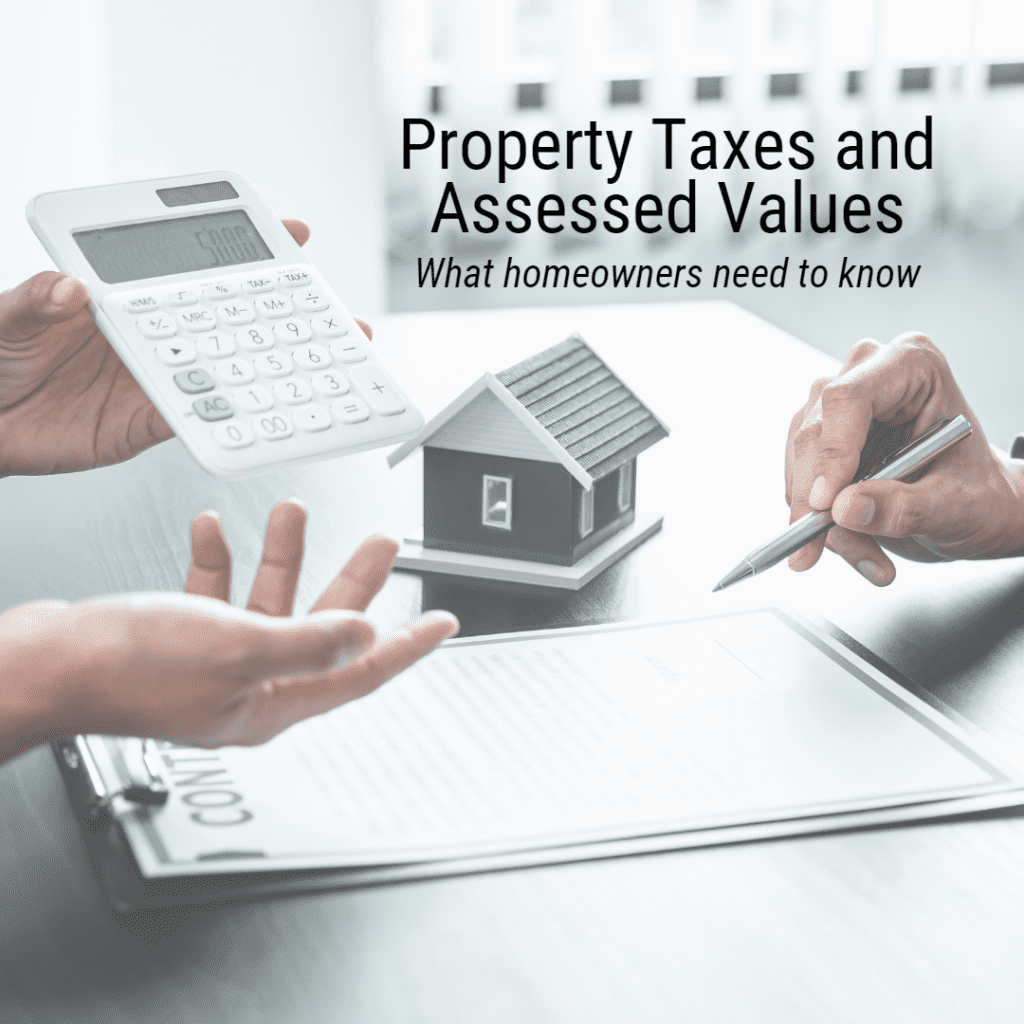January 23, 2023 | Andersen Group Realty
Unlocking the Mystery: What Homeowners and Potential Sellers Need to Know about Property Taxes and Assessed Values

As a homeowner, understanding property taxes and assessed values is crucial in order to budget for and plan for any potential increases. These taxes and values can greatly impact the overall cost of owning a home and can even affect your ability to sell or refinance your property. In this blog, we will explore the importance of knowing what property taxes and assessed values are and how they can affect your finances as a homeowner.
Property taxes and assessments are calculated by local governments in order to fund public services such as schools, roads, and emergency services. As a homeowner, it’s important to understand how these taxes and assessments are calculated, as they can have a significant impact on your finances.
The first step in calculating property taxes is determining the value of the property. This is known as the assessed value and is typically determined by a local assessor. The assessor will take into account factors such as the size of the property, the age and condition of the building, and the overall real estate market in the area.
Once the assessment value has been determined, the local government will use this value to calculate the property taxes. The taxes are typically calculated as a percentage of the assessment value, and the exact percentage can vary depending on the jurisdiction. In addition to the property taxes, homeowners may also be responsible for paying other types of taxes such as sales tax and income tax.
As a homeowner, it’s important to keep an eye on your property taxes and assessments, as they can have a significant impact on your finances. If you believe that your assessment value is too high, you can appeal the decision to the local government. Additionally, if you are planning on selling your property, it’s important to consider the impact of property taxes and assessments on the value of the property.
When selling a home, a higher property assessed value can benefit the seller because it can lead to a higher sale price for the home. Buyers may be willing to pay more for a home that has been assessed at a higher value, and the seller may be able to ask for a higher price as a result.
On the other hand, when owning a home, a higher property assessed value can be a downside because it can lead to higher property taxes. Property taxes are typically based on the assessed value of a home, so a higher assessed value can mean a higher tax bill for the homeowner.
In summary, property taxes and assessments are calculated by local governments to fund public services such as schools, roads, and emergency services. The assessment value is determined by the local assessor and is based on factors such as the size of the property, the age and condition of the building, and the overall real estate market in the area. As a homeowner, it’s important to keep an eye on your property taxes and assessments, and to consider the impact of these taxes and assessments on the value of your property when planning to sell it.

